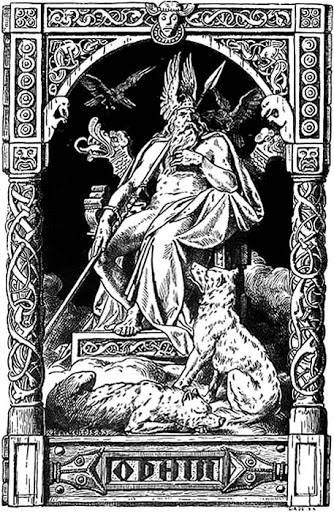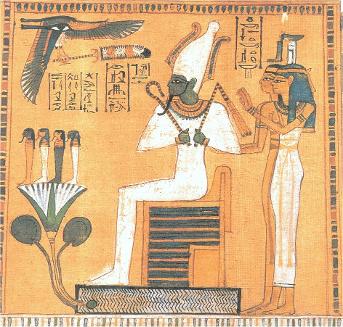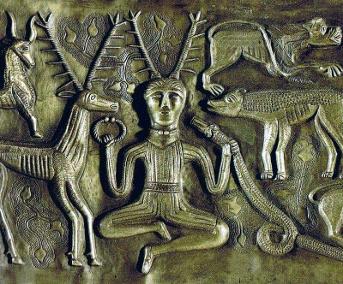Polytheistic Paganism
Polytheistic Pagan Ministry
Paganism is the ancestral religion of the whole of humanity. It includes all the divine beings and gods of days past and draws us near to our ancestral roots. A tree without strong roots it easily hewn down by the wind. Without knowledge of our ancestry it is impossible to fully embrace the greatness we are as a human family. There are many branches to the one tree, and many roots. To deny our roots in favor of monotheism is to deny the tree of nourishment. There is much to be learned in honoring ancestry, for they are always with us. A true polytheist respects all deity, even if choosing a few favorites, is capable of honoring them all with reverence.



Pagan observances can be carried out through personal relationship with nature spirits such as appreciating the life and beauty of a tree, or animal. It can also be seen in the recognition of the power and majesty of earth and her sacred features such as mountains, bodies of water, or as a fully articulated guardian divinity such as, for example, Thor, or Isis etc. Paganism, at its heart, is a reverence for all life and a connectedness with nature and the heavens. Sometimes worship comes in the form of a nature hike, feeling close to nature spirits, or invoking the names of ancestral deities for guidance and protection.
Paganism seeks to unite nature and spirit by observing the cycles of the natural year and its seasons, and using the signs in the heavens to teach us about ourselves and to assist us in our progress through this life. Spiritual growth and renewal is celebrated in community gatherings and marked by festivals which offer access to different divinities according to their affinity with different times of year. Many Pagans see the Earth itself as sacred and one of the temples we worship within as respect for its majesty brings unity with all life and its cycles. Nature is one of our greatest teachers.
The various deities of Paganism are a recognition of the diversity of Nature and of the powers that rule over us from the heavens. The gods and goddesses can be seen as a community of individuals much like the extremely diverse human community in this world- one big family; each deity with its own personality and unique qualities. Others systems of paganism, such as that of Isis and Osiris or Wiccan-based systems may see all the goddesses as one Great Goddess, and all the gods as one Great God, whose harmonious interaction and creation is the secret of the universe. Uni-Verse, one song with many parts that combine to make a symphony of sound. Sometimes the observance of many deities is used to understand the different personality traits within the individual during different cycles in life.
Polytheistic Pagans recognize that other spiritual beings, combined together, create one great whole of truth together and that each deity represents only a part of the entire saga. When examined against our own personalities we can see that we ourselves are divine, and that all have the capacity to recognize one's own godlike attributes. Pagans who worship the 'One' are described as henotheists, believers in a supreme divine principle where all parts create one whole; not to be confused with monotheists who believe in one true singular deity and the belief that other deities are false.
Our church supports and welcomes polytheistic right-hand-path pagans to our congregation as they are able to respect the diversity of the attributes of the gods and able to coexist with others who's paths may be different from their own. We also accept henotheistic RHP pagans who are inclusive to all god-aspects within the various pantheons of the human family.
© Copyright Free Church of the Magi